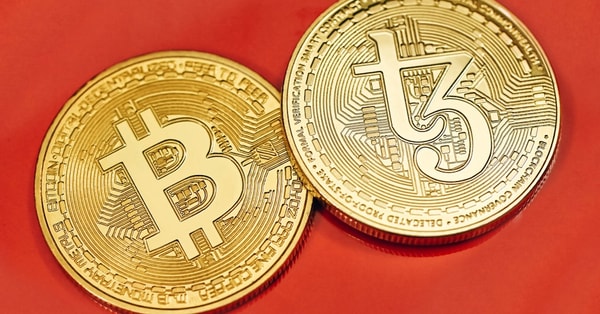FTX Drops Motion to Limit Repayments in Key Jurisdictions
FTX has withdrawn its motion to limit repayments in restricted jurisdictions, while founder Sam Bankman-Fried faces an appeal hearing in New York.
In a significant turn of events, FTX Trading Ltd., the embattled cryptocurrency exchange, has withdrawn its motion to limit repayments to creditors located in China, Russia, and other jurisdictions that have been deemed restricted. This development comes amidst ongoing bankruptcy proceedings and a broader scrutiny of the cryptocurrency sector following the collapse of the once-prominent exchange.
Founded in 2019 by Sam Bankman-Fried, FTX quickly ascended to prominence, becoming one of the largest cryptocurrency exchanges in the world. Known for its user-friendly interface and diverse range of trading options, FTX attracted millions of users and significant investment from venture capitalists. However, the exchange's meteoric rise was abruptly halted in November 2022 when it filed for bankruptcy, following revelations of mismanagement, fraud, and the misuse of customer funds.
Bankman-Fried, often referred to as SBF, was subsequently arrested and charged with multiple counts of fraud and conspiracy. In November 2023, he was convicted and sentenced, with his appeal hearing set for Tuesday in New York. The fallout from FTX's collapse has sent shockwaves through the cryptocurrency industry, leading to increased regulatory scrutiny and a crisis of confidence among investors.

FTX's recent decision to withdraw its motion to limit repayments is noteworthy for several reasons. Initially, the motion was part of a larger strategy to streamline the bankruptcy process and manage the distribution of assets to creditors. By restricting repayments to certain jurisdictions, FTX aimed to solidify its position in negotiations with creditors and streamline the bankruptcy proceedings.
However, this approach drew criticism from various stakeholders, including creditors and legal experts, who argued that limiting repayments could exacerbate the already tense situation for many affected by FTX's collapse. The withdrawal of the motion signals a shift in strategy and may indicate a willingness on the part of FTX's leadership to engage more transparently with creditors and stakeholders.
With the withdrawal of the motion, FTX will now face the challenge of addressing claims from creditors across various jurisdictions, including those in countries that have implemented strict regulations on cryptocurrency transactions. This could complicate the bankruptcy process, as the company must navigate a complex web of international laws and regulations while ensuring that all creditors are treated fairly.
Furthermore, the decision may reflect a broader trend within the cryptocurrency industry, where companies are increasingly recognizing the importance of maintaining goodwill with stakeholders, particularly in the wake of high-profile collapses. As the regulatory landscape continues to evolve, companies like FTX are likely to face increased scrutiny and pressure to act transparently and responsibly.

As FTX navigates these turbulent waters, the focus also remains on its founder, Sam Bankman-Fried. Scheduled to appear at an appeal hearing in New York on Tuesday, Bankman-Fried's legal team is expected to present arguments seeking to overturn his conviction. The outcome of this hearing could have significant implications not only for Bankman-Fried but also for FTX and the broader cryptocurrency industry.
Bankman-Fried's case has garnered substantial media attention, with many viewing it as a litmus test for the future of cryptocurrency regulation and enforcement. If his appeal is successful, it could set a precedent that influences future cases involving cryptocurrency fraud. Conversely, a failed appeal may solidify the current legal landscape, which has become increasingly unfriendly to cryptocurrency entrepreneurs and companies.
The future of FTX remains uncertain, as the company continues to grapple with the fallout from its bankruptcy and the implications of its leadership's actions. As the cryptocurrency market stabilizes, FTX will need to find a way to restore trust among its users and creditors.

Industry experts suggest that FTX's ongoing bankruptcy proceedings and the outcome of Bankman-Fried's appeal may serve as a catalyst for regulatory reforms in the cryptocurrency sector. As authorities around the world seek to establish clear guidelines and regulations, companies operating in this space will need to adapt to ensure compliance and protect their interests.
In conclusion, the withdrawal of FTX's motion to limit repayments marks a pivotal moment in the ongoing saga of the cryptocurrency exchange. As the company seeks to navigate its bankruptcy proceedings and the complexities of international law, the eyes of the industry will be firmly fixed on both FTX and Sam Bankman-Fried. The outcomes of these developments will undoubtedly shape the future of cryptocurrency regulation and the operational landscape for exchanges worldwide.
Tags:
Related Posts
Kickstart Your Creativity: A Beginner's Guide to Illustrator
Ready to dive into digital art? Join me on a fun journey through Adobe Illustrator, where I'll help you unleash your creativity, step by step!
E-commerce in 2023: Trends Shaping Our Shopping Future
Curious about how shopping has changed since the pandemic? Discover the latest e-commerce trends and what they mean for your online experience in 2023!
10 Essential Tips for Better Remote Team Communication
Struggling with remote team communication? Discover 10 practical tips that can help your virtual team thrive and connect more effectively.
10 Essential Tips to Supercharge Your Remote Work Day
Struggling with remote work? Discover 10 practical tips to boost your productivity and find the perfect work-life balance while working from home.
How Remote Work Trends Are Shaping Our Productivity
Curious about how remote work is changing productivity? Join me as I dive into the new dynamics of working from home and what it means for all of us.
Unlocking 2024: Key Marketing Trends You Can’t Ignore
Curious about the marketing trends shaping 2024? Join us as we explore data-driven strategies that can elevate your brand’s impact this year.